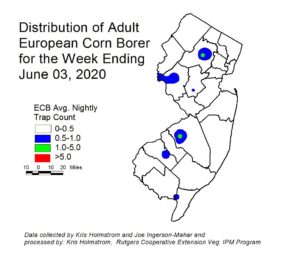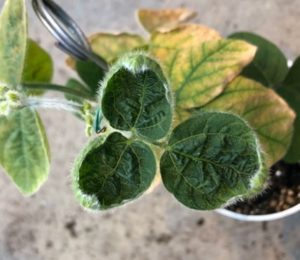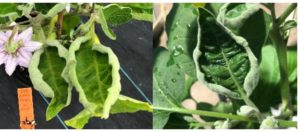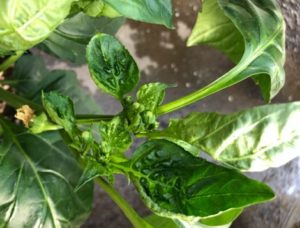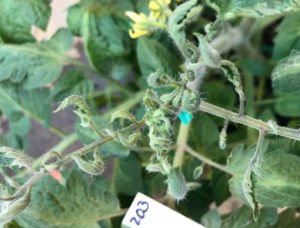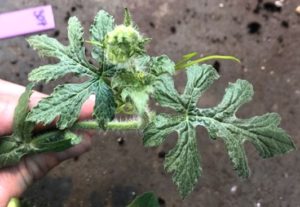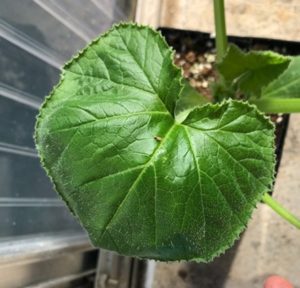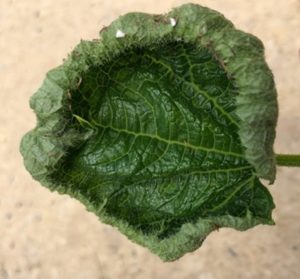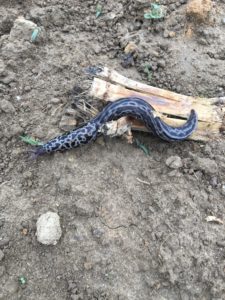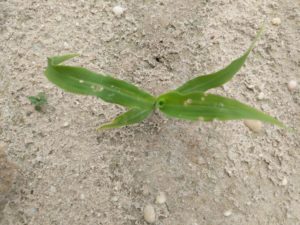Sweet Corn
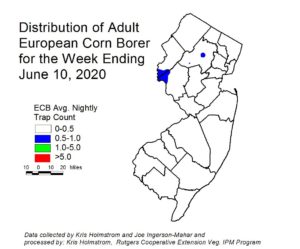 European corn borer (ECB) moth catches have declined over the past week despite increasing temperatures. At this time, activity is highest near the Hunterdon/Warren County border, although this is still a low level population (see ECB map at left). The number of traps registering moderate catches remains low, and catches are widely dispersed. Another week of trapping will clarify whether this decrease in activity signifies the end of the first flight. A number of corn plantings are now in whorl through tassel stages and able to support ECB larvae. Larval infestations as high as 12% were detected as far north as Hunterdon County this week. As moth catches fall, larval development and damage increase. We expect that with a few more warm days, these infestation rates will climb quickly in many parts of the state.
European corn borer (ECB) moth catches have declined over the past week despite increasing temperatures. At this time, activity is highest near the Hunterdon/Warren County border, although this is still a low level population (see ECB map at left). The number of traps registering moderate catches remains low, and catches are widely dispersed. Another week of trapping will clarify whether this decrease in activity signifies the end of the first flight. A number of corn plantings are now in whorl through tassel stages and able to support ECB larvae. Larval infestations as high as 12% were detected as far north as Hunterdon County this week. As moth catches fall, larval development and damage increase. We expect that with a few more warm days, these infestation rates will climb quickly in many parts of the state.
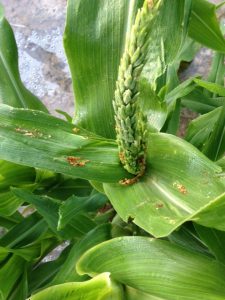 Look for the characteristic “shot-hole” type of feeding (photo below at right) and consider treating when infested plants exceed 12% in a 50 plant sample. As plantings proceed to the pre-tassel stage, ECB larvae may be found in emerging tassels (see photo at left). It is a good idea to treat individual plantings as they move into the full tassel/first silk stage one time. This eliminates any ECB larvae that have emerged with the tassels as they begin to move down the stalk to re-enter near developing ears.
Look for the characteristic “shot-hole” type of feeding (photo below at right) and consider treating when infested plants exceed 12% in a 50 plant sample. As plantings proceed to the pre-tassel stage, ECB larvae may be found in emerging tassels (see photo at left). It is a good idea to treat individual plantings as they move into the full tassel/first silk stage one time. This eliminates any ECB larvae that have emerged with the tassels as they begin to move down the stalk to re-enter near developing ears.
Useful insecticides for this particular application include synthetic 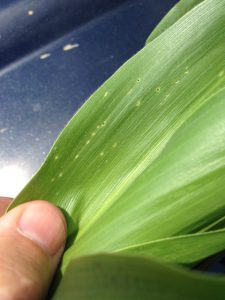 pyrethroids (IRAC Grp 3), spinosyns (including OMRI approved Entrust) IRAC Grp 5), and diamides such as Coragen (IRAC Grp 28) or materials such as Besiege which include the active ingredient in Coragen. Synthetic pyrethroids alone should NOT be used for corn earworm (CEW) protection on silking corn. Control with these materials is very inconsistent.
pyrethroids (IRAC Grp 3), spinosyns (including OMRI approved Entrust) IRAC Grp 5), and diamides such as Coragen (IRAC Grp 28) or materials such as Besiege which include the active ingredient in Coragen. Synthetic pyrethroids alone should NOT be used for corn earworm (CEW) protection on silking corn. Control with these materials is very inconsistent.
The highest nightly trap catches of ECB for the week ending 6/10/20 are as follows:
| Allamuchy 1 | Crosswicks 1 | Milford 1 |
| Blairstown 1 | Denville 1 | Milltown 1 |
| Califon 1 | Downer 1 | Springdale 1 |
| Chester 1 | Eldora 1 | Tabernacle 1 |
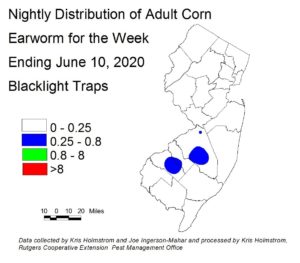 Widely scattered, but slightly increased catches of corn earworm (CEW) occurred this past week. As the earliest plantings (mainly in the south) proceed to full tassel and on to silk, even this low population can present a limited threat.
Widely scattered, but slightly increased catches of corn earworm (CEW) occurred this past week. As the earliest plantings (mainly in the south) proceed to full tassel and on to silk, even this low population can present a limited threat.
The highest nightly trap catches of CEW in black light traps for the week ending 6/10/20 are as follows:
| Califon 1 | Downer 1 | Green Creek 1 |
| Dayton 1 | Georgetown 1 | Tabernacle 1 |
 Articles in this section contain information helpful to the NJ commercial organic grower.
Articles in this section contain information helpful to the NJ commercial organic grower.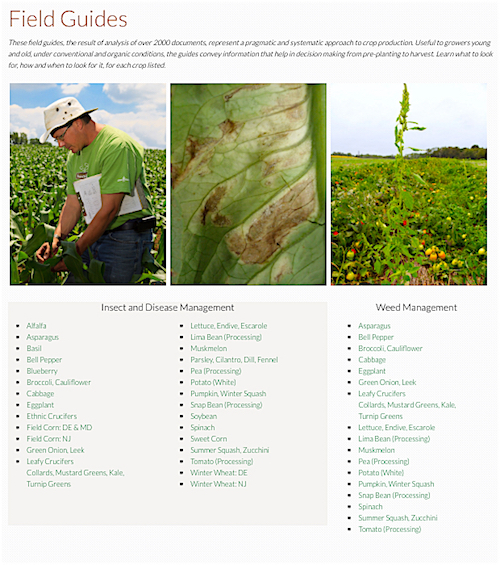
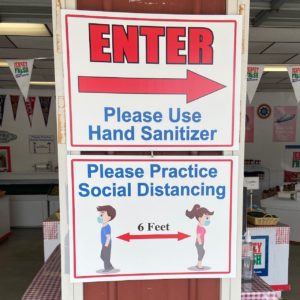 Agents Michelle Infante-Casella, Meredith Melendez, William Bamka, Stephen Komar and Wesley Kline to educate famers selling directly to the public about changes occurring to the industry as a result of the COVID-19 pandemic. Four sessions in May were presented with the last session being a farmer panel discussion about changes on farms forced due to the pandemic. Farmers included Tracy Duffield – Duffield’s Farm Market, Dave Specca – Specca You-Pick Farm, and Jess Niederer – Chickadee Creek Organic Farm. In May, 145 participants attended this online series, offered on Tuesday Evenings from 7:00-8:00 PM. All sessions were recorded and are available to view online. The topics included the following:
Agents Michelle Infante-Casella, Meredith Melendez, William Bamka, Stephen Komar and Wesley Kline to educate famers selling directly to the public about changes occurring to the industry as a result of the COVID-19 pandemic. Four sessions in May were presented with the last session being a farmer panel discussion about changes on farms forced due to the pandemic. Farmers included Tracy Duffield – Duffield’s Farm Market, Dave Specca – Specca You-Pick Farm, and Jess Niederer – Chickadee Creek Organic Farm. In May, 145 participants attended this online series, offered on Tuesday Evenings from 7:00-8:00 PM. All sessions were recorded and are available to view online. The topics included the following: